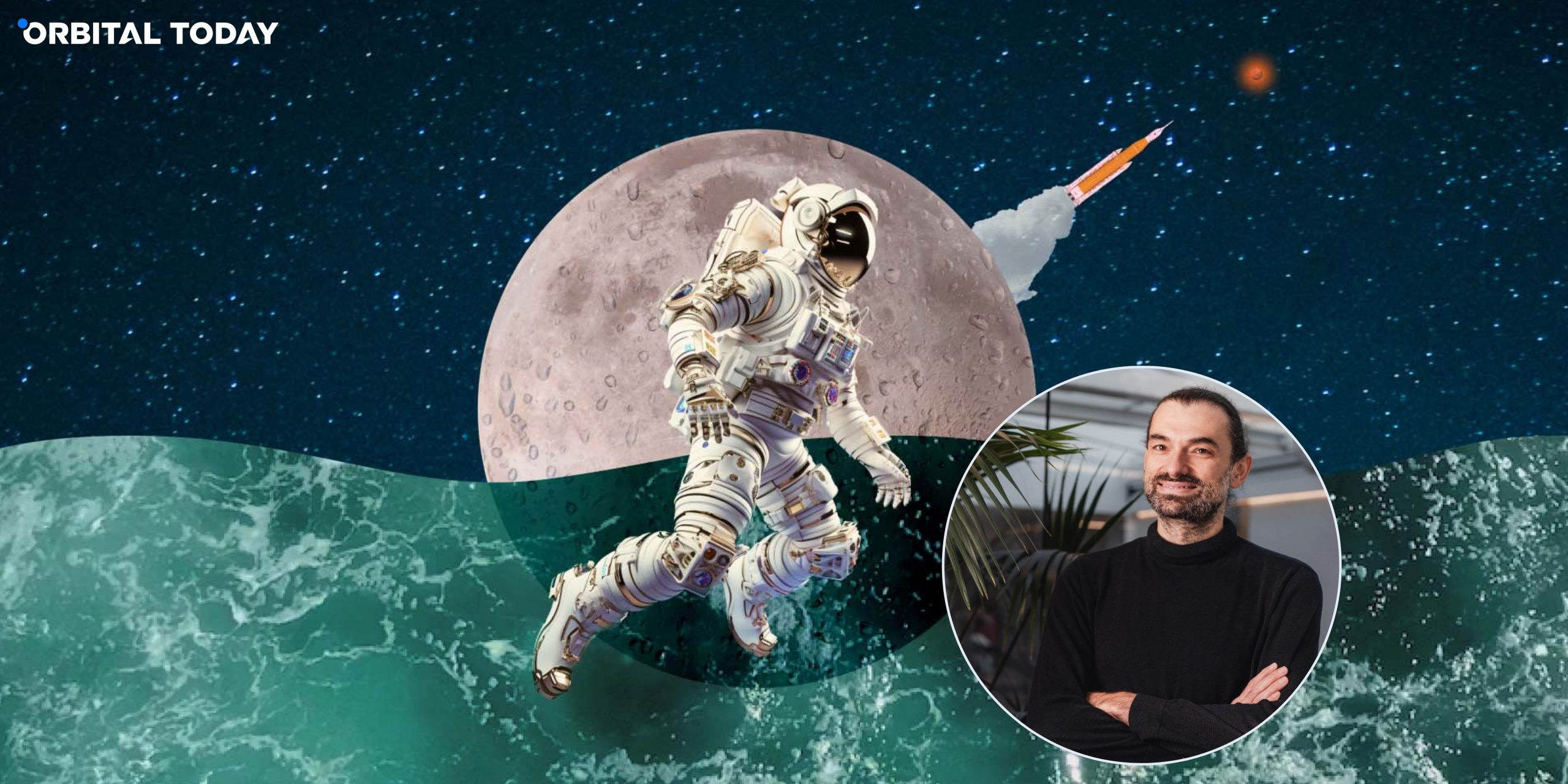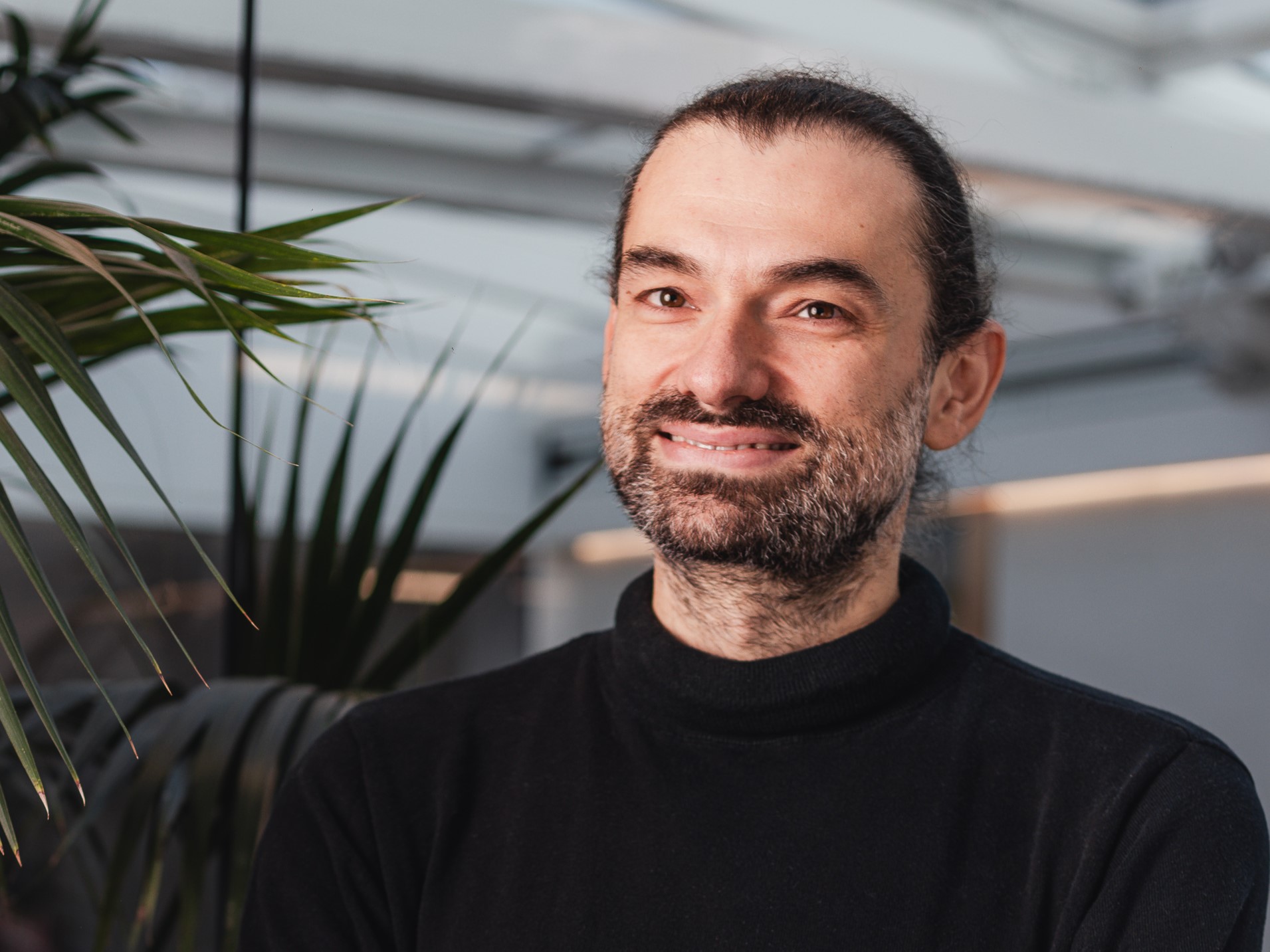Oli Usher on the Aqualunar Challenge: to reach for the stars, we first need to shake things up here on Earth
6th Aug 2024
Editor’s note: The Aqualunar Challenge finalists announcement was one of he space industry’s highlights at Farnborough International Airshow 2024. In this opinion piece, Challenge Works Director Oli Usher lays out the need for such challenges and the effects UK Space Agency, through implementation by Challenge Works, hopes to achieve.
Visions of the future space economy can sound ambitious, even fantastical: permanent outposts in orbit, habitats on the Moon, landings on Mars, the asteroids and beyond.
And the term ‘space economy’ – rather than ‘space exploration’ – is apt: we’re moving on from planting flags to seeking opportunities. Serious people think there is real value to unlock…
Using the unique microgravity environment of Low Earth Orbit to manufacture things that can’t be made on Earth; extracting rare and precious elements from asteroids or the lunar soil; generating solar power and beaming it down to Earth.
It was in this spirit that, working with the UK and Canadian space agencies, we launched the Aqualunar Challenge earlier this year. We thought that there was an opportunity to support early-stage technology development for one of the key enablers of the space economy – extracting and purifying water. With that water, you can drink, grow food and manufacture fuel.
Our hypothesis was that there would be small and nimble teams with smart ideas that could benefit. Teams with space expertise but little background in water, and teams with water, cleantech or other terrestrial engineering experience but little background in space.
Our finalists were announced in July and their approaches are now public: a diverse range of technological approaches, from teams across the country, most without previous experience in the space sector. We’ll have to wait for the judges’ meeting in March 2025 for the final verdict, but so far, so good.
As well as creating tech – with applications here on Earth as well as on the Moon – and as well as building the capacity of our finalist teams, we were hoping the Aqualunar Challenge would shake things up in the UK space sector.
Moving the Needle in the UK space sector
The UK is actually a big player in the global space economy.
Aside from a few high-profile moments like Tim Peake’s trip to the space station, or the Beagle 2 Mars landing, it tends to fly below the radar. We’ve left most of the big visioneering to our American cousins.
That seems like a shame. Not just because space is fun (and it is!), but because we’re missing out on an opportunity to inspire and broaden the range of talent and ideas that go into the space sector, and that risks us missing out on a large and growing economic opportunity for the UK.
So we were delighted to have got applications from all over the country for the Aqualunar Challenge. That was an early sign that it wasn’t just us and our collaborators at the UK Space Agency who shared our vision.
And we’ve been even happier at the reception our ten finalist teams have got.
Features in the national and international media, presentations to a full house at the Farnborough International Airshow, and even coverage by BBC newsround to inspire the next generation. Alongside that, there is a growing number of supporter organisations who see the value of what we’re doing and want to support our finalist teams.
These visions of gleaming spaceships, lunar bases full of lush plants and robots mining asteroids won’t happen if we don’t make them happen. And to make it so, we don’t just need new tech and capable innovators – we need an enabling and nurturing ecosystem too.
We hope this will be the first of many prizes to shift the UK’s space ecosystem, and we wish all of the finalist teams the best of luck in the months ahead.
Postscript:
Orbital Today would like to thank Oli Usher for providing his insight into how to turn our visions of interplanetary life into reality.




Thank you for your comment! It will be visible on the site after moderation.